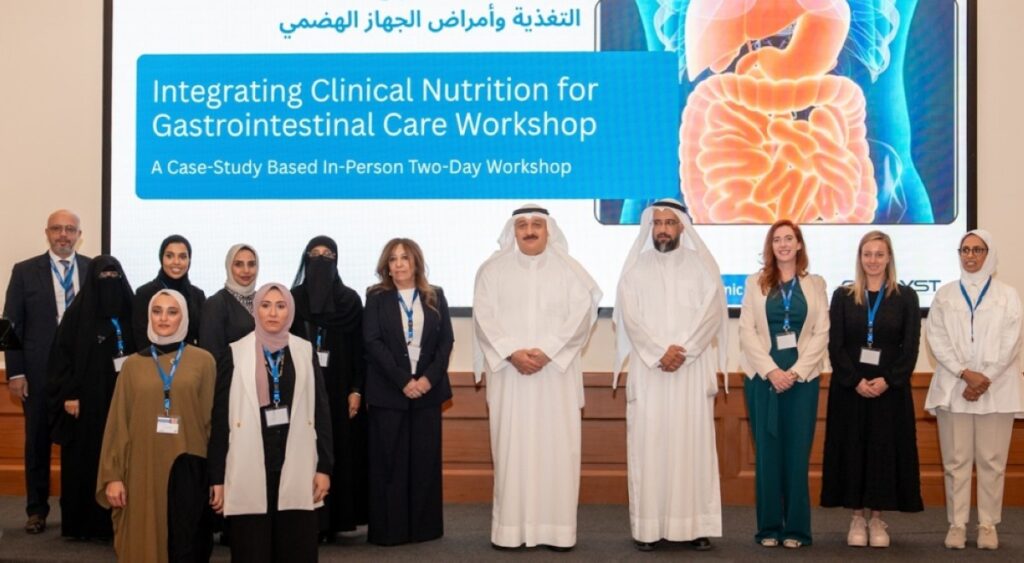KUWAIT: Health Minister Dr Ahmad Al-Awadhi on Monday emphasized the pivotal role of therapeutic nutrition clinics in promoting public health and preventing chronic diseases, noting that Kuwait now operates 66 such clinics across primary healthcare centers in various governorates. The remarks were made during the opening of a forum and specialized workshop on therapeutic nutrition organized by the Ministry’s Nutrition and Food Department under the theme “Nutrition and Digestive System Diseases”. The event was attended by Acting Assistant Undersecretary for Public Health, Dr Al-Mundhir Al-Hasawi.
Dr Al-Awadhi highlighted that the workshop aims to strengthen scientific understanding of digestive system disorders, underscore the role of therapeutic nutrition across different stages of care, and facilitate the exchange of experiences and discussions on recent research to enhance healthcare quality in Kuwait. He stressed that proper nutrition is a key factor in disease prevention, especially given the rising prevalence of non-communicable diseases linked to modern lifestyles.
“Integrated efforts based on sound scientific evidence, coupled with collaboration across specialties, are essential to tackle these challenges,” he said. The Minister noted that obesity, low physical activity, unhealthy diets rich in processed foods, and tobacco use remain major contributors to chronic disease, but these factors are modifiable through evidence-based interventions, continuous awareness campaigns, and the promotion of healthy behaviors.
KUWAIT: Health Minister Dr Ahmed Al-Awadhi inaugurates a forum and specialized workshop on therapeutic nutrition organized by the Ministry’s Nutrition and Food Department under the theme ‘Nutrition and Digestive System Diseases’. – KUNA photos
Dr Al-Awadhi highlighted the Ministry’s achievements, noting the opening of four new therapeutic nutrition clinics between April and September 2025, bringing the total nationwide to 66. These clinics provide nutritional assessments and develop individualized treatment plans for patients with obesity and chronic conditions such as diabetes, hypertension, and high cholesterol, while promoting lifestyle modifications and nutritional education to support sustainable healthy choices. He added that the treatment programs are based on scientifically validated dietary systems tailored to each patient following a comprehensive assessment, ensuring their effectiveness in improving health outcomes and quality of life.
Earlier, the Ministry of Health announced that the newly opened clinics are located at Al-Aqila Health Center, Mubarak Al-Kabeer East Health Center, and Al-Mutlaa N11 and N8 Centers, reinforcing the Ministry’s commitment to preventive and curative healthcare. According to the Ministry, the expansion aligns with the national health strategy to enhance community health through early intervention and evidence-based nutritional counseling. The clinics employ various scientifically proven dietary systems, including the Mediterranean diet, the DASH diet, low-calorie diets, and the Portfolio diet, with the most suitable program determined after thorough patient assessment.
Dr Hasnaa Ayad, Director of the Nutrition and Food Department, described the expansion as a major step in advancing therapeutic nutrition services within primary healthcare centers. “Proper nutrition is the cornerstone of preventing chronic diseases and improving quality of life,” she said, noting that the department continues to train healthcare staff and develop treatment programs in line with internationally recognized best practices in therapeutic nutrition. — KUNA



